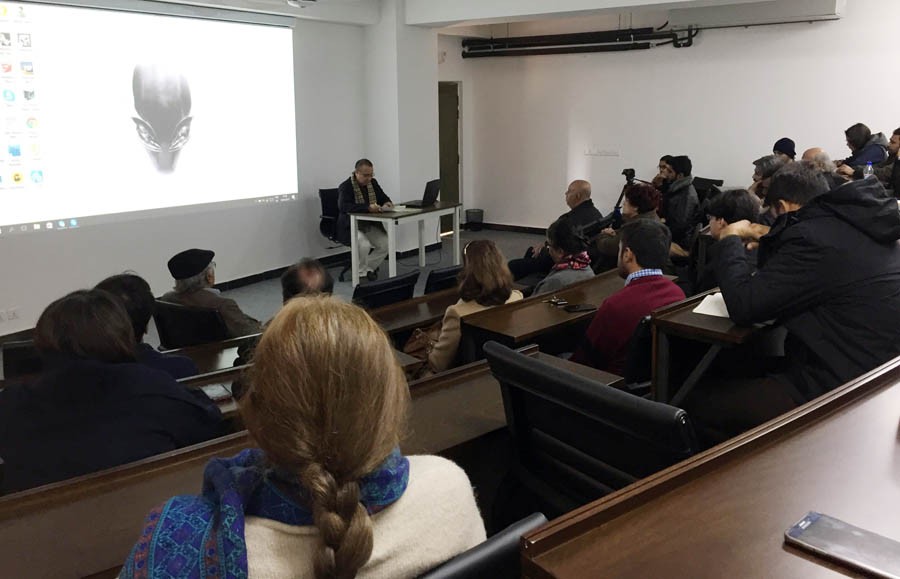
Well renowned scholar and historian Dr Noman ul Haq’s enlightening lecture sought to trace the city’s Persian links

As a myriad, large-scale infrastructural projects threaten to sever Lahore’s links with its historical past, internationally known scholar and historian Dr Syed Noman-ul Haq recently presented a powerful reminder of the city’s Persian identity, during the Ghaznavid Period (977-1186).
Titled ‘Lahore in Imagination, Glimpses of a Ghaznavid City,’ the session which was held at the University of Culture & Arts (UCA) campus on Raiwind Road, turned out to be one enlightening affair.
Dr Haq, presently a professor of Social Sciences and Liberal Arts at the Institute of Business Administration (IBA), Karachi, is recognised especially for his contribution in the disciplines of Islamic history and Islamic philosophy. At the lecture, he revealed how Lahore, or Little Ghazna, as it was once referred to, used to be the "beaconhouse of Persian literature and poetry for well over two hundred years."
Lahore flourished for more than two hundred years as a cradle of Persian literary activities. Data Sahib’s seminal Kashf al-Mahjub, the first Persian treatise on Sufism, was written during this time.
It was a lecture that was reeking of nostalgia, rendered in Dr Haq’s unassuming and emotionally charged style. It was attended by noted personalities such as Dr Kanwal Khalid, music maestro and producer Mushtaq Soofi, and well-known artist Saba Hussain.
A major part of the discourse was a tribute to the glorious Persian poet Masu’d Sa’d Salman’s love and longing for the city during his long years in confinement, as expressed through his stirring verses.
Sa’ad Salman, more famously known as the prisoner poet, was rightly termed as one of the pioneer Persian poets in the subcontinent whose legacy has survived by the works of Ghalib and Iqbal, amongst others.
He is said to have fallen out of favour with Sultan Ibrahim and, upon his return to the city, was sent to the prison. In one of his poems, written during his decade-long imprisonment, he laments to his beloved city:
Since your dear son
has parted from you,
How are you grieving for him
With groaning and lamentation?
You were the thicket,
I was a lion of that thicket.
How were you with me,
How are you without me?
The lecture was very much an ode to Lahore’s Persian legacy and less of a socio-political narrative, a confession Dr Haq made explicitly at both the beginning and the closing.
"Lahore is a source of so much nostalgia to so many people, and I am no different," he stated.
The lecture instigated a brief conversation on the absence of Punjabi in Dr Haq’s narrative, especially as it was about Lahore, a hub of Punjabi culture and identity.
Language being the building block of all human intellectual enterprise and, of course, for the evolution of human society, such reactions were only natural and will always be the subject of emotional bias, despite the most honest of historical and anthropological efforts.
Another basis of collective introspection was Dr Haq’s emphasis on the role of the rulers. He said, "The Ghaznavid rulers were extremely well-informed, something we cannot say about the rulers we have today."
The system of patronage that employed renowned poets and intellects and appointed them as state officials has often been deemed as excess by naysayers, but its contribution to Lahore’s rich literary and cultural history should be seen as a lesson by the present rulers.